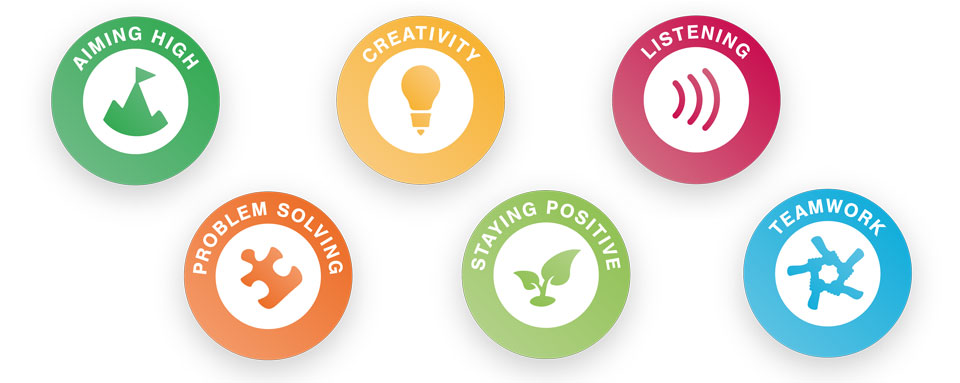How to Cultivate Good Judgement in Academic Work and Daily Life
‘Critical thinking’ means to ‘positively critique’; to successfully judge between fact and opinion, draw reasonable conclusions and problem solve analytically yet creatively.
Children whose critical thinking skills are strong, tend to have a broader, more balanced outlook on life, even under stress, and show generally good discernment with people and decisions as they grow up and make their own choices.1
Creative Thinking and Critical Thinking
Far from being opposites, critical thinking and creative thinking can be closely intertwined. Innovative problem solving uses creativity of thought, such as pattern spotting, imagining novel (but relevant) ‘what if…?’ scenarios and researching unusual leads.
To help compare and build both skillsets, this post is structured to mirror the Potential Plus UK article, Creative Thinking Skills: Activities for Arts to Sciences
Characteristics
The characteristics of a high potential learner successfully using critical thinking skills would include:
- Discerning between provable facts and face-value opinions
- Being open-minded, questioning, and reflective
- Sifting relevant information out of many possibilities
- Having an enquiring mind that enhances intellectual ability
- Drawing reasonable, evidence-based conclusions
- Problem solving analytically yet creatively
- Using higher order thinking skills, (HOTS), such as evaluation.
How to Boost Critical Thinking Skills
Remember that, despite – in fact due to – being highly capable, a young learner with high potential may be excelling without ever having been taught how to systematically break down a problem or assess its different aspects. They may struggle to adjust to this new method, so allow them to do their own thinking and praise their efforts. Use their age and areas of interest as the basis for appropriate conversation or research – and have fun playing detective!
- Encourage debate and discussion. Instead of giving ‘snap decisions’ or accepting a blinkered opinion, have fun taking topics further and making intelligent, informed judgments. Ask for more information, analysis, and alternative viewpoints. This can span from why a young child prefers one cartoon or book character to another, to why a teenager likes a certain music style, fashion trend or media icon and wants to emulate that genre.
- Play Positive, Negative, Interesting. Think up unusual ‘what if’ scenarios within your child’s area of knowledge. For example, “What if…fish could talk? / Ancient Egyptians were time travellers? / Monet painted only in shades of pink? / Minecraft had a ‘Clear Inventory’ potion?” Encourage them to think of something(s) Positive, something(s) Negative and something(s) Interesting that would result.
- Get comfortable with self-evaluation. Even as an adult, it is tricky to accurately and unemotionally assess your own strengths and weaknesses. It can be easy to underestimate your talents – or to overestimate them! Calmly review your (current) abilities so that you ‘model’ how to self-evaluate. Encourage your young learner to self-evaluate also, or to analyse a piece of their work, a recent game, or a social situation, highlighting what they feel went well and where they feel they could improve.
- Critically analyse information sources. How does a young child know their friend really does have a puppy? And how can your teenager discriminate hard facts from a journalist’s viewpoint or uncover a social media influencer’s hidden agenda? Debate printed encyclopaedias versus Wikipedia. Foster open-minded differences of opinion about advertising, social media, magazine covers and newspaper headlines.
- Break out the board games! Planning, problem solving, logical thinking and decision making can be developed in fun ways with the right games. Potential Plus UK’s guide to Developing Thinking Skills Through Board Games lists many up-to-date games with an overview of the skill areas targeted.
- Learn about ‘higher order thinking skills’, (HOTS). Even by just asking open-ended questions about an academic area, hobbies or daily life, HOTS build on existing strengths and stimulate high potential learners to stretch their thinking. In its advice sheet, PA320 Bloom’s Revised Taxonomy (Thinking Skills), Potential Plus UK describes how Bloom’s (Revised) Taxonomy can help with this, explaining that it “includes learning objectives that are perceived to be higher order and lower order. […] Thinking at the higher levels is also often called critical thinking and creative thinking”.
- Problem solve real-world issues. There is always a gadget to fix, pocket money to budget or a day’s timetable to plan. Task your high potential learner with creating workable solutions. A project that appeals to their personal interests will help engage them in seeking facts and expertise, modelling ideas, applying skills learned in other situations, reaching an informed viewpoint and formulating a considered conclusion.
- Be the change you want to see! Carers, parents and teachers are encouraged to show a positive example; to listen thoughtfully, respond meaningfully and pose reflective questions while giving the opportunity to reflect. “Parents nurture their children‘s thinking skills when they model thoughtful decision-making processes; demonstrate the power of inquiry; show pleasure in debate, controversy and puzzlement; encourage dialogue about real-world events; challenge one another‘s opinions in respectful ways; engage in problem-finding as well as active problem-solving activities at home; value opposition; engage in reflection; and invite questions, independent thought and creative expression in various forms.” (D Matthews and J Foster)2.
Skills Builder Partnership
“Problem Solving; the ability to find a solution to a situation or challenge” is one of eight essential skills needed for optimal educational outcomes and future success, according to the Skills Builder Partnership. Their expertise has helped hundreds of Primary, Secondary and SEN schools and they are currently working with Potential Plus UK on how to best use their framework at home with parents.
The Skills Builder Partnership considers that “while part of Problem Solving is technical know-how and experience, there are also transferable tools that individuals can develop and use”. To do this, their stepped approach guides children to look inwards to evaluate, analyse and investigate ideas – and also to reach out for advice, knowledge, group reasoning and wider research, (see Skills Builder’s Universal Framework Problem Solving ).
Creativity, another essential skill, is seen as ‘the’ complement to Problem Solving ( Creative Thinking Skills: Activities for Arts to Sciences).
Dyslexia or Autism Spectrum Disorder (ASD)
Adjustments should be made for any high potential learner also diagnosed with a challenge such as Autism Spectrum Disorder (ASD) or dyslexia.
To motivate a child with dyslexia, see Inspirational Figures: For Dual or Multiple Exceptional Learners – A Focus on Dyslexia and Dyspraxia
For information specifically about supporting critical thinking skills in dyslexia, see Critical Thinking Skills – Dyslexia Support and Assessment in Hampshire .
The hurdles and interests of young people with Autism Spectrum Disorder vary greatly. However, common difficulties with sifting and interpreting information (especially non-verbal cues) can be supported and developed https://www.autismparentingmagazine.com/teaching-children-critical-thinking-skills/
To motivate a child with autism, see Inspirational Figures: For Dual or Multiple Exceptional Learners – A Focus on Autism Spectrum Disorder
Critical Thinking Resources for High Potential Learners
From Potential Plus UK:
- Advice Sheet: PA702 Developing Critical Thinking Skills | Potential Plus UK
- Advice Sheet: PA701 Developing Creative Thinking Skills | Potential Plus UK
Critical Thinking Weblink:
- A relaxed article that highlights traits needed in possible future careers: Critical Thinking Definition, Skills, and Examples (thoughtco.com)
Critical Thinking Books and Games:
- Simister, C.J. (2009). The Bright Stuff: Playful Ways to Nurture Your Child’s Extraordinary Mind
- Sample Activities; a free downloadable booklet from the Critical Thinking Co: Sample-Activities-eBook.pdf
- Pi for Kids & Pang, A. Gifted and Talented: Left Brain Training for children ages 3-6: Critical and Logical Thinking Skills: Volume 1, 2014
- Baker, M. (2017). Critical Thinking Detective Book 1 – Fun Mystery Cases to Guide Decision-Making (Grades 4-12+)
- Treffinger, D., Isaksen, S., Stead-Doval, B. (2005) Creative Problem Solving: An Introduction,
- Richard, E. Easy-to-play, reproducible card- and board games: 10 Critical Thinking Card Games
Teaching Critical Thinking
- https://www.structural-learning.com/post/what-is-critical-thinking
- Home Education and Critical Thinking Skills https://www.thewaldockway.com/homeschool-logic-made-easy/
- Seale, C. (2020). Thinking Like a Lawyer: A Framework for Teaching Critical Thinking to All Students
References
- PA702 Developing Critical Thinking Skills
- An Interview With Dona Matthews and Joanne Foster: About Teaching Gifted Students Higher Order and Critical Thinking Skills

About the author: Gillie Ithell is a writer and editor for Potential Plus UK with a B.A. degree in Modern Languages & Communication. Having worked internationally as content manager of classic board games and ‘edutainment’ software, Gillie now writes to inspire others like herself; on a daily journey with High Learning Potential.






